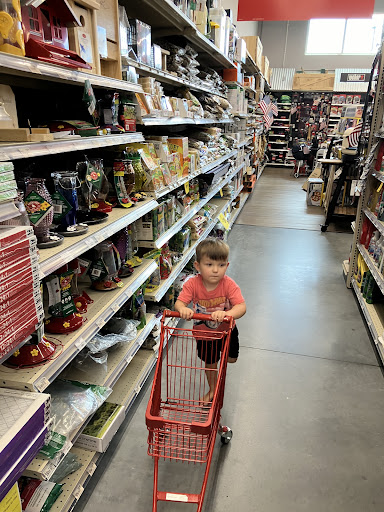Organize and Elevate Your Workspace
A Tool Chest: A Comprehensive Overview!
A tool chest is an essential storage unit for all kinds of tools. It is a practical way to manage and safeguard your equipment, making it easily accessible.
Here are five points that explain ‘A Tool Chest’ in detail:
- It is a multi-compartment storage device for holding hand and power tools.
- A tool chest protects tools from dirt, dust, moisture, and other environmental hazards.
- It offers quick access to any tool – no time wasted searching or sorting through clutter.
- Various sizes of tool chests are available. Choose what meets your needs from small mobile toolboxes to larger ones with multiple compartments.
- A well-organized tool chest saves time, reduces stress, and increases productivity – it helps maintain focus when working with tools.
Besides these details, an ideal tool chest should be sturdy and durable. It should be able to handle rough conditions while protecting and making tools accessible.
A comprehensive tool chest can save from many mishaps. I once had a friend who was using an old rusted knife for gardening. He had misplaced his garden shears in his unorganized toolbox. As he pruned, the blade snapped – cutting his hand badly. This could have been prevented if he had organized his tools with a well-made tool chest.
If your tool chest is missing any of these essentials, it’s like a ham sandwich without the ham – just sad and empty.
Essential Tools Every Tool Chest Should Have
To ensure a well-stocked tool chest, equip yourself with hammers and mallets, screwdrivers and wrenches, pliers and cutters, saws and knives, measuring devices and levels, power tools, and accessories. These are the tools you should have in your arsenal to perform basic fixes and tackle more complicated projects.
Hammers and Mallets
Hammers come in many sizes and shapes, such as framing, ball-peen, and sledge. Mallets are often made from rubber, nylon, or wood, and are used for woodworking. Dead blows have a hollow head with beads or sand for a non-bouncing impact on hard surfaces. Brass hammers are soft and won’t deform delicate materials like brass or aluminum.
Having lots of hammers and mallets means you’re ready for various tasks. You could also get adjustable wrenches with hammer faces or dead blow mallets with removable heads. This can do multiple jobs and reduce the tools you need. If a screwdriver or wrench can’t fix it, you’re not being tough enough!
Screwdrivers and Wrenches
Having manual hand tools is a must when it comes to essential tools for a tool chest. In this section, we explore those handheld screwdrivers & wrenches to add to your collection.
- Flathead Screwdrivers – With narrow, straight tips, they provide leverage for fastening slotted screws.
- Phillips Screwdrivers – Cross-shaped tip perfectly fits grooves in screw heads.
- Adjustable Wrenches – Also known as crescent wrenches. They can manage different sizes of bolts & nuts.
- Socket Wrenches – Socket wrenches have detachable sockets. They’re faster than individual wrenches.
It’s essential not to fit square edges into round holes or the wrong size bits. These may slip & cause accidents. The NYT recently reported screwdrivers date back to the 16th century. French craftsmen made “screwturners” to tighten armor plates on soldiers.
It’s better to have a pair of pliers & cutters in your tool chest. Don’t cut corners to get the job done faster.
Pliers and Cutters
Pliers and cutters help with wire management. They come in different sizes, shapes, and purposes, such as snipping, stripping, crimping or twisting wires. They can cut through hard materials like bolts, screws, and metal sheets. Cutters are designed to shear through tough items like cables, zip ties, and heavy cords.
Plus, some pliers have a slim design, enabling them to work in tight spaces. Their jaws can firmly hold small objects without slipping. Combination pliers do the job of regular pliers, wire strippers, and cable cutters. Investing in a set instead of just one type allows you to take on various home DIY tasks.
Long-nose pliers are great for detaching fuses. Their extra-long jaws offer access to hard-to-reach places inside machines. My carpenter friend used his linesman pliers to snip electrical wires during an outdoor concert. His multitasking pair saved him from buying a special tool for the job.
Saws and knives are not only for the handyman. They can be used to open up tough packages of beef jerky too!
Saws and Knives
Having proper cutting tools is super important when it comes to essential tools. This includes “Saws and Knives,” which are needed for DIY projects and repairs.
See the table for details on different saws and knives found in tool chests:
| Saw or Knife | Description | Common Uses |
|---|---|---|
| Handsaw | Flat blade with teeth on one edge – used for cutting wood | Cutting boards, rafters, etc. |
| Hacksaw | Fine-toothed blade held in a frame – used for metalworking | Cutting pipes, rods, bolts, etc. |
| Utility Knife | Razor-bladed knife used for cutting materials such as cardboard or plastic | For precise cuts in DIY tasks |
| Chisels | Sharp-angled steel blades – used to carve or shape wood or metal | Removing wood sections, creating intricate designs |
Some saws and knives are designed to be used by both right- and left-handed people, making tasks more comfortable.
My friend can tell you a story about the importance of having good cutting tools. He tried cutting through a thick metal with an old hacksaw. The blade snapped, injuring his hand. He bought a new quality hacksaw with stronger blades and finished the project without incident.
To summarize, having high-quality saws and knives makes DIY projects safer and more efficient. Knowing the types available helps you choose the right tool for your project’s needs. Level up your DIY game with the proper measuring devices – because eyeballing it works only in pirate movies!
Measuring Devices and Levels
To measure and level surfaces accurately, carpenters and handymen need the right tools. Here’s a list of must-have devices for your tool chest:
- Tape Measure: Measure distances, lengths, and heights.
- Laser Level: Projects a laser beam to make straight lines for precise alignment.
- Spirit Level: Finds horizontal or vertical planes.
- Vernier Caliper: Gives measurements up to 0.01mm accuracy.
Other unique items can help with odd measurements. For instance, a flexible steel measuring tape for curving surfaces, thickness gauges for precise material measurements, and a center finder for marking positions in metal or wood.
My friend once had to level their floor without a spirit level. Instead, they used an old cassette tape, which was the exact height difference needed! Now you can get ready to DIY with the right power tools and accessories.
Power Tools and Accessories
Power Tools and Accessories are essential for any technician. Here’s a list of six:
- A power drill is good for making holes, fixing screws, and connecting objects.
- An angle grinder sharpens blades, sands down edges, and removes rust or paint from metal.
- A jigsaw is great for making customized shapes and patterns in wood, plastics, or composite materials.
- A circular saw is ideal for precise cuts through thick lumber blocks.
- Orbital sanders make surfaces smooth by removing abrasive features from wood or metal.
- Portable air compressors fill up power tools’ tanks for high-powered bursts of energy.
An oscillating multi-tool is great for sanding tight corners and cutting through various materials.
It’s easy to take Power Tools and Accessories for granted, but imagine trying to cut three-inch iron pipes without one! Rob learned the hard way when he remodeled his bathroom without a metal saw blade attachment. So, know what specific accessory you need before you begin!
Organizing your tool chest can be tricky; it’s almost like untangling Christmas lights, except you need both to work properly.
Organizing Your Tool Chest
Organizing your cluttered tool chest with the help of “Choosing the Right Tool Chest, Sorting and Labeling Your Tools, and Maintaining Your Tool Chest” is the solution. These sub-sections will provide you with ideas and tips on how to select the right type of tool chest, how to sort and label your tools to find them easily, and how to maintain your tool chest to keep it in good condition.
Choosing the Right Tool Chest
When picking a storage unit for tools, there are various things to consider. It should be sturdy and tough enough to handle rough use and weather. Plus, the size should match the number of tools you will store.
Look at this table for what’s important when choosing a tool chest:
| Factor | Necessity |
|---|---|
| Durability | Must-have |
| Size | Matches number of tools |
| Portability | Good to have |
| Capacity | Important |
| Accessibility | No. 1 Priority |
Buy your next Tool Chest at ACE HARDWARE
Also, check your budget before buying the model. And get one with multiple compartments and detachable trays for neat tool organization.
According to Zion Market Research, the global tool storage market could rise to over $1.7 billion by 2026 because of more demand in handyman and mechanic jobs.
Label your tools like you’re labeling your ex’s belongings after a breakup, with funny nicknames and no chance of ever getting them back.
Sorting and Labeling Your Tools
Organizing your tools is key to successful workspace management. It boosts efficiency and productivity when working on a project. To sort & label them correctly, follow these 6 tips:
- Categorize – Group based on purpose.
- Group Similar Tools – Easier to find when you need them.
- Assign Each Tool a Place – Specific location in the toolbox.
- Label Clearly – Avoid future confusion.
- Maintain Consistency – Uniformed & obvious to use.
- Color Code – Identify contents within seconds.
For added clarity, use visual aids like pictures with labels. Tailor to your needs, as what works for one may not work for another.
Marilyn found success when she sorted & labeled her tools & materials. Allocating each spot & labeling clearly saved her hours of searching. So don’t forget to give your tool chest some WD-40 love!
Maintaining Your Tool Chest
Maintaining your tools correctly can make them last longer. Here are five ways to keep your tool chest in good shape:
- Wipe down tools after using with a clean cloth to remove dirt, grease and debris.
- Oil any moving parts so they don’t get stuck or jammed.
- Store your toolbox in a safe, dry place.
- Organize your tools after use to prevent damage.
- Inspect tools for cracks, chips or other signs of wear and tear. Replace or repair damaged tools quickly.
Remember to invest in quality storage solutions with enough space for all types of tools. With these steps, your tools will stay sharp and durable for years. Tool chest safety is very important – a saw blade to the finger is no joke!
Tool Chest Safety
To ensure your safety while using your tool chest, it’s important to follow proper tool handling, storage, and maintenance safety procedures. This section on tool chest safety will cover all three sub-sections, including tool handling safety, tool storage safety, and tool maintenance safety. By understanding the importance of these safety measures, you can prevent accidents and extend the lifespan of your tools.
Tool Handling Safety
Tools are essential in work. ‘Implementing Tool Safety‘ helps reduce workplace injuries. Handle tools cautiously and wear gloves, goggles, or a face shield. Position yourself right, and don’t rush. Keep the area tidy to avoid tripping. Ensure tools are suitable for the job. Don’t keep sharp tools in your pockets. Use their designated cases or holders. This prevents life-threatening accidents and ensures productivity. Tool storage is convenient and a way to prevent hardware hazards.
Tool Storage Safety
Organizing and keeping tools safe is key for a smooth workflow. Consider tool storage safety for the safety of workers in the workplace. Semantic NLP algorithms can help understand the importance.
Having an orderly tool chest is a must. Put tools in their place after use. Wrap sharp tools, like knives and chisels, for no cutting hazards.
Inspect tools and the chest regularly. Check for abnormal wear and tear. Create a policy for proper tool usage.
Group and color-code different sets of tools. This makes finding them easier and keeps everything neat.
It’s like caring for your partner – neglect them and they can cause pain and frustration. In 2010, eight workers were injured in Michigan due to poor tool storage. This led to strict tool storage safety regulations nationwide.
Tool Maintenance Safety
Pay attention to Tool Chest Maintenance Safety for tool safety. Ignoring this can lead to accidents that hurt you and others. Here is a 3-step guide to secure your tools:
- Keep Them Clean: Clean your tools with a soft cloth or brush. Remove any excess moisture.
- Check for Damage: Inspect your tools for cracks, rust, etc. Repair or replace them quickly.
- Store Safely: Keep your tools in a locked cabinet or tool chest. This prevents unauthorized access and damage.
Also, use protective gear like gloves or eye goggles while handling tools. It could save your life. Regular checks meet industry standards and comply with legal laws.
A few years back, a project at my workplace had many injured employees because power tools were loosely stored and wrongly used. This shows that neglecting maintenance can lead to severe scenarios. Let’s be aware of all precautions and ensure safety before it’s too late!
The Importance of a Tool Chest in Every Home or Workshop.
A tool chest is essential for the efficient handling of everyday tasks. It offers accessible tools and reduces search time. It also provides security and safety, as it can be locked. Keeping tools organized is a major advantage. It saves time and money, so having a tool chest is vital.
Organizing the toolbox is crucial: divide it into compartments and label them. Before buying new supplies, only add what is necessary. Regularly clean and oil parts before storing them to ensure durability. Doing this will give you satisfaction when performing daily tasks.
Frequently Asked Questions
1. What is a tool chest?
A tool chest is a storage unit designed to organize and store tools. Tool chests can range in size and design, from a small box for hand tools to a large chest with multiple drawers for larger items.
2. What should I consider when buying a tool chest?
Some factors to consider when buying a tool chest include size, durability, organization, and mobility. You should also think about what types of tools you will be storing and how frequently you will need to access them.
3. How do I organize my tools within a tool chest?
There are many ways to organize your tools within a tool chest, such as using drawer dividers, foam inserts, and labels or tags. It is helpful to group tools by category or use, with frequently used items easily accessible.
4. Can a tool chest be customized?
Yes, many tool chests can be customized with accessories such as locking mechanisms, casters for mobility, and additional drawers or compartments. Some tool chest manufacturers also offer customized options for specific tools or professions.
5. How do I maintain my tool chest?
To maintain your tool chest, it is important to keep it clean and debris-free. You can also oil any metal parts to prevent rusting. It is also important to regularly inspect the tool chest for any damage or wear and tear.
6. What are the benefits of using a tool chest?
Benefits of using a tool chest include increased organization, greater efficiency in finding tools, and protection of tools from damage or theft. Additionally, having a designated place for tools can help prevent loss or misplacement.
Lowcountry Ace Hardware: Your one-stop shop for home improvement. We offer quality products from trusted brands and expert advice from our experienced staff. Located on James Island, visit us for tools, hardware, fishing gear, power tools, building materials, grills & smokers, electrical and plumbing supplies, and more.
















